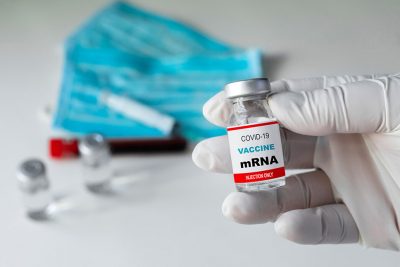By Michael H. Crawford, MD
Synopsis: A large, nationwide population study in Sweden of the risk of adverse cardiovascular events after messenger ribonucleic acid (mRNA) COVID-19 vaccinations has shown that, except for rare cases of myopericarditis, severe cardiovascular events, such as myocardial infarction, heart failure, and stroke, are reduced, probably because of the prevention of COVID infection.
Source: Xu Y, Li H, Santosa A, et al. Cardiovascular events following coronavirus disease 2019 vaccination in adults: A nationwide Swedish study. Eur Heart J. 2025;46(2):147-157.
Because of the rare risk of myopericarditis seen predominantly in young men after the second dose of messenger ribonucleic acid (mRNA) COVID-19 vaccines and case reports of other cardiovascular (CV) events post-vaccine, there have been concerns about the risk of CV events post-mRNA COVID-19 vaccines in general. Thus, these investigators from Sweden conducted a nationwide registry-based cohort study of all Swedish adults who were alive on Jan. 1, 2018, and still were resident on Dec. 27, 2020, the date vaccinations started in Sweden.
This cohort was comprised of more than 8 million individuals who were followed until Dec. 31, 2022. After each dose of vaccine, the risk window was defined as six weeks. The primary outcomes were myopericarditis, dysrhythmias, myocardial infarction (MI), heart failure (HF), and a composite of transient ischemic attack (TIA) and stroke. Subjects with a prior history of any of these CV events were excluded. Various potential confounders (e.g., age and comorbidities) were included as covariates in the statistical model.
COVID-19 vaccines were received by 89% of the population; 87% received two doses and 68% received three or more doses. There were 1,668,508 new cases of COVID-19 during the study period: 40% before dose 1, 4% after dose 1, 34% after dose 2, and 22% after dose 3. There was an increased risk of myopericarditis in the first week after dose 1 (hazard ratio [HR], 1.59; 95% confidence interval [CI], 1.20-2.12), which persisted in the second week (HR, 1.43; 95% CI, 1.06-1.94). After the second dose, the risk increased in the first week only (HR, 3.60; 95% CI, 2.94-4.40). There was no increased risk after the third dose. Increased extrasystoles were observed after the first dose (HR, 1.17; 95% CI, 1.06-1.28) and after the second dose (HR, 1.22; 95% CI, 1.10-1.36).
Extrasystoles were more common in the older subjects. Overall arrhythmia risk, including atrial fibrillation (AF), was attenuated by vaccination. MI risk was decreased, particularly after the third dose (0.81 [0.74-0.89]), as was HF (0.73 [0.69-0.78]). An increased risk of TIA was observed after the second dose (1.13 [1.05-1.23]), but only in those age > 40 years. Conversely, stroke risk was reduced, particularly after the third dose (0.69 [0.63-0.74]). The authors concluded that, after mRNA COVID-19 vaccination, extrasystoles and TIAs were transiently increased, but full vaccination reduced the risk of more severe CV events such as MI, HF, and stroke.
Commentary
The results of this large study with comprehensive follow-up replicate those of other studies that showed an increased risk of myopericarditis of two to eight out of 100,000 vaccinations, which supports the validity of the Swedish study. However, it should be pointed out that, based on other studies, the risk of myopericarditis with COVID-19 infection is much higher (50-180/100,000 cases) than with the mRNA vaccines. Also, the risk of severe CV events, such as MI, stroke, and HF, is reduced with vaccination, especially after the third dose.
The slight increase in TIA but reduction in stroke is interesting, as is the increase in extrasystoles but reduction in AF, MI, and HF. The authors posited that TIA and extrasystoles were subjective symptoms in this study and perhaps the subjects were sensitized to the potential risks of vaccines. Also, these symptoms have not been seen in other studies. In addition, extrasystoles were more common in men and may have been associated with myopericarditis.
There are limitations to the Swedish study. COVID was diagnosed only in those in whom it was tested. However, testing was highly recommended in Sweden and was at no cost. So, the magnitude of this limitation probably was small. Paroxysmal AF could confound the assessment of the risk of AF because its occurrence after vaccination could be a recurrence rather than a new problem. Also, the frequency of cardiac events after the third dose of vaccine could be reduced because of the healthy survivor bias. Finally, no imaging or biomarker data are available to explore the mechanisms of the findings.
Overall, this large study with comprehensive follow-up has exhibited that mRNA COVID vaccines are cardioprotective and that any adverse effects either are rare or minor.
Michael H. Crawford, MD, is Professor Emeritus of Medicine and Consulting Cardiologist, UCSF Health, San Francisco.

